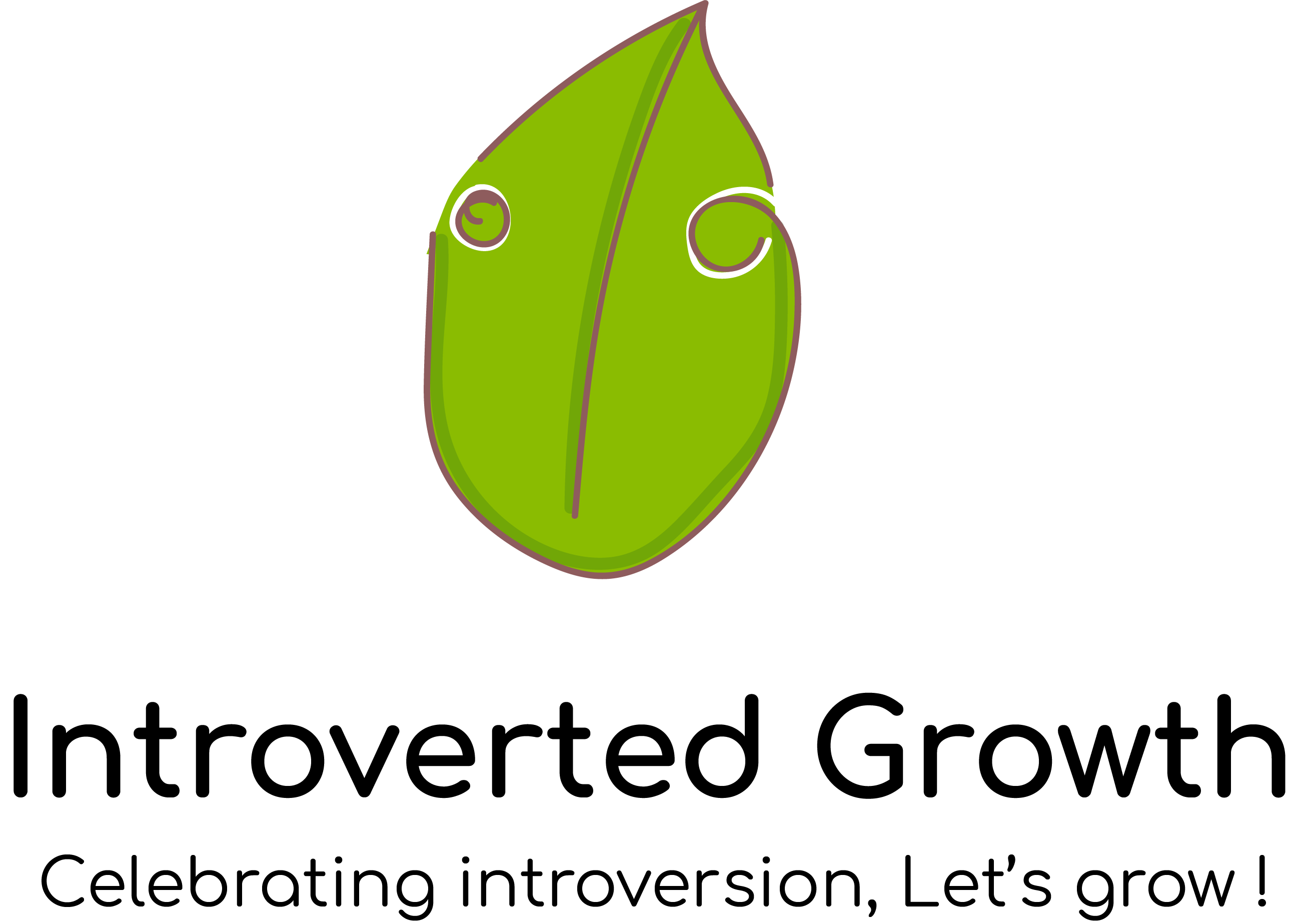Do you think introverts are hard to deal with?
We introverts are often misunderstood, and might even find ourselves bullied for not being understood the right way. This is because, in a world that favors extroversion, introverts are expected from a young age to be more outgoing, more outspoken, and more…present! something that’s not in our nature.
Introverted people might not get the same opportunities as their extroverted counterparts. They may also struggle to speak up for themselves or assert what they want out of fear of rejection from others. But there are ways to approach introverts in your life so you can make better connections with them!
This article will explore how you can handle an introvert and what they need from you.
10 Rules for Dealing With Introverts
1. Understand that introverts tend to be inward turning and focus on internal thoughts
Introverts tend to be inward turning and focus on internal thoughts. They will think and try to process their own thoughts, feelings, and emotions before turning to those of other people. This might make them seem to have a lack of empathy and they come off as cold. But this is not the case! Introverts, in fact, are natural empaths and can be the most attuned to other people’s feelings, they’re just more introspective than extroverts, who focus outwardly on the external world and find it easier to show their empathy.
2. Introverts like deep meaningful conversations and hate small talk
Introverts don’t enjoy small talk or talking at length about nothing of importance, so don’t get triggered if they reject this kind of chatting because they have reasons to do so. They aren’t being mean, stubborn, or rude! It’s just that they are satisfied with the conversation you had so far and talking about superficial things isn’t going to add anything new and meaningful to the conversation.
Respect this and give them space while being patient enough for their response if you want a good conversation with an introvert in the future!
Introverts actually enjoy in depth conversations and are actually very good at it. Don’t get bored and just switch topics to something less meaningful, even if you think your introvert friend may not have a lot to say about the subject. Give them time to warm up and reflect on what they want to say before you move on! you may be in for some eye opening conversations!
3. Be a good listener, don’t interrupt them or try to change the subject
When speaking with introverts, it can be beneficial to take a step back and be a good listener. You don’t want to interrupt them or try to change the subject. This shows that you’re open minded and are genuinely interested in what they have to say.
However, if you do need to change the subject or tell a story of your own, it’s recommended that you ask their permission first.
Remember that introverts are people too, and they have just as many feelings as an extrovert. Even if you don’t think someone is being reserved or not friendly enough with you, keep in mind that this may not be a personal thing. If there’s something bothering them, try to find out what it is by actually listening to them.
4. Don’t lie to introverts
One of the most important things to avoid when you’re around an introvert is lying to them, which can be hard because many people lie without thinking about it.
But if you remember this one simple rule – don’t lie to an introvert – you will have a better chance at understanding them and making friends with them.
We introverts are intuitive, we know when someone is being dishonest with us. Whether an introvert act by their intuition or not that is up to them. But trust me, it’ll be hard for you to gain an introvert’s trust back once you lose it. We have a feeling type personality, so we don’t easily forget being lied to and hurt.
5. Give them time to think before you ask questions
Introverts need time to think and put their thoughts into words. Interrupting them during this stage can be quite irritating for them and ruin a conversation. Make sure you give them enough time to think before asking a question and don’t rush or make them feel pressured into giving an answer. If they ask for more time to think, please respect their wishes and provide them with as much time as they need.
They understand that you may have questions or something to say after they finish talking, just wait until they are done before you continue a conversation.
6. Provide space and allow introverts to be alone
It’s exhausting for introverts to “put on a face” and fake their way through social situations. They can only do it for so long before the pressure becomes too much and they need time alone to recharge.
What people don’t understand is that this isn’t because introverts are shy or anti-social; they simply get their energy from being alone rather than in large groups as extroverts do. Introverts process information differently – with more depth and meaning – when they have some space to themselves, which is why many of them enjoy quiet activities such as reading or art projects by themselves. Respect their need for alone time and give space if they ask for it or whenever you feel like they need it.
7. Offer help if needed but don’t push it too hard
“Offer, do not insist.”
Introverts dislike being forced into social situations they are uncomfortable with. They may be “noisy” on the inside, but they often have a difficult time expressing themselves verbally. If you know introverts well, then you’ll know that their needs can vary from day to day depending on how much energy they have left after spending hours in solitude. Respect your introverted friend’s choice whether they take you up for your offer or shy away from it. Don’t insist on helping them and make them feel uncomfortable being around you. They may need some time to think over your offer and consult you when they are ready.
8. Respect their choice in friendship
Introverts tend to seek out only a few close friends, unlike extroverts who prefer having many friends of lesser importance (called acquaintances).
Because introverts tend to have few friends, they cherish each friendship dearly. They would rather avoid certain people than lose a friend – something that extroverts may be more willing to do if it means gaining new acquaintances.
If an introvert has decided not to talk/hang out with you at the moment, respect their decision and be there for them if they need you.
Introverts may not be as talkative, but they are fiercely loyal and honest once they have chosen their friends. Don’t let their quiet nature fool you into thinking that they don’t enjoy your company – they may just need some time to think before responding to you. Especially at the beginning of your friendship.
9. Invite them even if you know they’ll pass
You might be thinking that this doesn’t make sense. How can you invite someone to hang out with you if they are going to say no?
Your introverted friend or partner will want to be invited and included when you think of spending the night out or plan a birthday party. Ask for their presence even though you know they probably will pass the invitation. They don’t mean to hurt your feelings by saying no. In fact, they will often decline the invitation even though there is a part of them that really wants to say yes. But going out sometimes and being around others can be draining for us and that’s why we avoid saying yes. This means that when an introvert declines your offer of hanging out, it’s not personal. But by not inviting them you’d definitely hurt their feelings and make them feel unwanted.
10. Don’t assume introverts don’t like you, we might just be shy about telling people that we do
Introverts need time alone to recharge, process information deeply, and work through things on their own before they can interact with others in a meaningful way. They sure won’t jump on you on your first encounter even if they secretly like you. They’re also naturally quieter and more private than extroverts.
Taking these facts into consideration, I suggest you look for subtle signs an introvert likes you. An obvious one is when they give you a small smile, but never actually make eye contact.
Introverts are generally uncomfortable with eye contact. This can be cute if they’re trying to subtly give you a small smile but feel really shy about looking at you in the eyes.
I’m guilty of this myself and yes it’s so hard to look into your darling’s eyes for more than 5 seconds, even though my boyfriend is a big cuddler and I love to snuggle with him, but you know what? You get used to it.
Plus, if a true introvert doesn’t like you and is not at all interested in being with you, they’ll make it obvious they want you away.
Reaching the end of this list, my hope is that these insights and rules will help you better understand introverts and their behaviors so that you can build a relationship with them. Remembering these things should make your interactions with us more pleasant and easier.
If you have any questions about how to approach an introverted person, don’t hesitate and ask in the comments below!
Also, if you have any other good rules for dealing with introverts, Tell us in the comments! You might give others who are having a hard time with their introverted friends or family members some insight.






